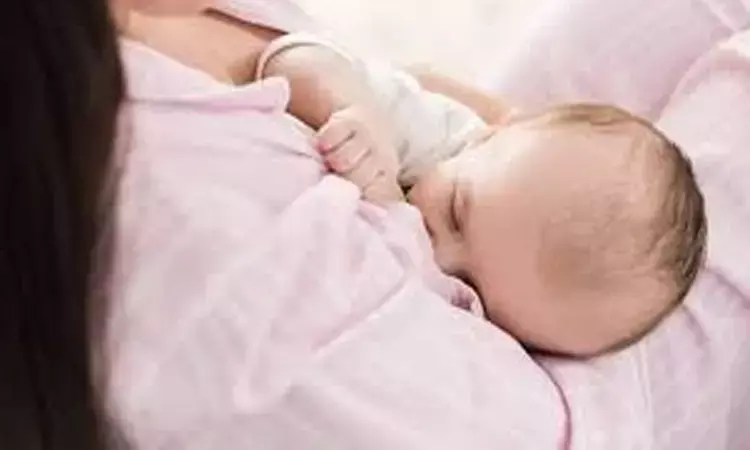- Home
- Medical news & Guidelines
- Anesthesiology
- Cardiology and CTVS
- Critical Care
- Dentistry
- Dermatology
- Diabetes and Endocrinology
- ENT
- Gastroenterology
- Medicine
- Nephrology
- Neurology
- Obstretics-Gynaecology
- Oncology
- Ophthalmology
- Orthopaedics
- Pediatrics-Neonatology
- Psychiatry
- Pulmonology
- Radiology
- Surgery
- Urology
- Laboratory Medicine
- Diet
- Nursing
- Paramedical
- Physiotherapy
- Health news
- Fact Check
- Bone Health Fact Check
- Brain Health Fact Check
- Cancer Related Fact Check
- Child Care Fact Check
- Dental and oral health fact check
- Diabetes and metabolic health fact check
- Diet and Nutrition Fact Check
- Eye and ENT Care Fact Check
- Fitness fact check
- Gut health fact check
- Heart health fact check
- Kidney health fact check
- Medical education fact check
- Men's health fact check
- Respiratory fact check
- Skin and hair care fact check
- Vaccine and Immunization fact check
- Women's health fact check
- AYUSH
- State News
- Andaman and Nicobar Islands
- Andhra Pradesh
- Arunachal Pradesh
- Assam
- Bihar
- Chandigarh
- Chattisgarh
- Dadra and Nagar Haveli
- Daman and Diu
- Delhi
- Goa
- Gujarat
- Haryana
- Himachal Pradesh
- Jammu & Kashmir
- Jharkhand
- Karnataka
- Kerala
- Ladakh
- Lakshadweep
- Madhya Pradesh
- Maharashtra
- Manipur
- Meghalaya
- Mizoram
- Nagaland
- Odisha
- Puducherry
- Punjab
- Rajasthan
- Sikkim
- Tamil Nadu
- Telangana
- Tripura
- Uttar Pradesh
- Uttrakhand
- West Bengal
- Medical Education
- Industry
New guidelines say breastfeeding is safe after anaesthesia

Women who are breastfeeding may require anaesthesia or sedation. Concerns regarding the passage of drugs into breast milk may lead to inconsistent advice from professionals.
New guidelines published by the Association of Anaesthetists in the journal Anaesthesia, to coincide with the start of World Breast Feeding Week (1-7 August) say that breastfeeding is safe after the mother has had anaesthesia, as soon as she is alert and able to feed.
"The guidelines say there is no need to discard any breast milk due to fear of contamination, since evidence shows that anaesthetic and non-opioid painkiller drugs are transferred to breast milk in only very small amounts," explain the authors who include Dr Mike Kinsella of the Association of Anaesthetists Safety Committee, based at St Michael's Hospital, Bristol, UK, and colleagues. "For almost all of these drugs, there is no evidence of effects on the breastfed infant."
However, they caution that drugs such as opioids and benzodiazepines should be used with caution, especially after multiple doses and in babies up to 6 weeks old (corrected for gestational age). "In this situation, the infant should be observed for signs of abnormal drowsiness and respiratory depression, especially if the woman is also showing signs of sedation," they explain. "Techniques that reduce opioid usage are preferable for the breastfeeding woman. Local and regional anaesthesia have benefits in this regard, and also have the least interference with the woman's ability to care for her infant."
They also add that codeine should not be used by breastfeeding women following concerns of excessive sedation in some infants, related to differences in metabolism.
More generally, the guidelines say that any women with an infant aged 2 years or younger should routinely be asked if they are breastfeeding during their preoperative assessment, so that it can be explained to them that breastfeeding will be safe after their surgery. They say: "Where possible, day surgery is preferable to avoid disrupting normal routines. A woman having day surgery should have a responsible adult stay with her for the first 24 hours. She should be cautious with co-sleeping, or sleeping while feeding the infant in a chair, as she may not be as responsive as normal."
They conclude: "In summary, the pharmacological aspects of anaesthesia and sedation require little alteration in breastfeeding women. However, supportive care for the woman in the peri-operative period, and accurate advice, will ensure minimal disruption to this important part of childcare."
For more details click on the link: https://doi.org/10.1111/anae.15179
Hina Zahid Joined Medical Dialogue in 2017 with a passion to work as a Reporter. She coordinates with various national and international journals and association and covers all the stories related to Medical guidelines, Medical Journals, rare medical surgeries as well as all the updates in the medical field. Email: editorial@medicaldialogues.in. Contact no. 011-43720751
Dr Kamal Kant Kohli-MBBS, DTCD- a chest specialist with more than 30 years of practice and a flair for writing clinical articles, Dr Kamal Kant Kohli joined Medical Dialogues as a Chief Editor of Medical News. Besides writing articles, as an editor, he proofreads and verifies all the medical content published on Medical Dialogues including those coming from journals, studies,medical conferences,guidelines etc. Email: drkohli@medicaldialogues.in. Contact no. 011-43720751


